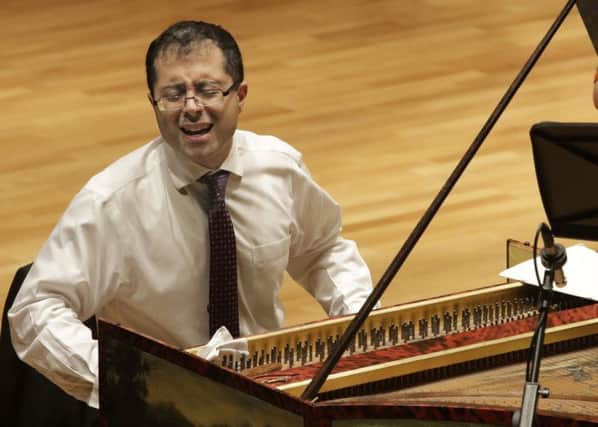Music at Paxton preview: David Kettle interviews harpsichordist Mahan Esfahan


“Someone got it into their head – probably because Columbia Records told them to think that way – that there was a definitive recording of Bach’s Goldberg Variations, made by Glenn Gould in 1981. Frankly I couldn’t care less. I’ve never heard that Glenn Gould recording, and I really don’t give a damn.”
That’s quite some statement, especially as it concerns what’s almost universally exalted as one of classical music’s landmark discs. But then Iranian-US harpsichordist Mahan Esfahani, who himself tackles Bach’s monumental Goldbergs at this year’s Music at Paxton festival, is nothing if not outspoken.
Advertisement
Hide AdAdvertisement
Hide AdYou can hardly blame him for that, or for feeling a certain frustration at the general perception of his instrument. “I like to think of the harpsichord as getting equal-opportunity hatred,” he says. That’s both from more traditionalist concertgoers who’d really rather be hearing a piano recital, he says, and also from the more adventurous crowd.
“There’s a huge amount of interest, but then you get people who just regurgitate what they’ve heard about the harpsichord having no expression. Or they’re so taken with it belonging to early music that they can’t adapt their thinking so that it covers anything else.”
He’s clear, however, that there’s a battle to be won in convincing audiences of the harpsichord’s expressiveness and versatility. “I definitely have a missionary attitude,” he admits. “Every day I open a conversation about the harpsichord with someone new on a train, in a coffee shop, somewhere like that. I always keep photos of it on my phone, I keep its names in different languages and I give out little cards about it. You never know who wants to know about it.”
And that battle also brings in the richness and sheer breadth of the harpsichord’s repertoire – both back to ancient times and right up to the present day. “We have several big composers on our side – Byrd, Bach, Rameau, Scarlatti, Frescobaldi – whose music is all very high-level. And the harpsichord has a huge repertoire – arguably larger than the piano’s, actually.”
Alongside those earlier names, Esfahani is praised, too, for his contemporary explorations – including a glittering harpsichord rethink of Steve Reich’s mesmerising Piano Phase. And accordingly, the second of his two recitals at Paxton embraces 20th-century composers Martinů and Peter Mieg alongside fantastical Baroque imaginings by Rameau.
But back to Bach. Esfahani devoted himself to learning the Goldberg Variations as recently as 2010 – as it happens, for a performance at the inaugural Lammermuir Festival, just up the road from Paxton. He went on to record the work for a well-received disc released late last year, the first in a projected cycle of Bach’s complete keyboard music.
It’s one of the monuments in the keyboard repertoire – but what is it that makes the Goldbergs so great? Esfahani is at a bit of a loss to explain. “It certainly puts you through the motions as a player. But one thing I’d say is that I’ve performed it now about 70 or 75 times, and I can remember distinctly every single performance. The experience of playing it is so vivid – that must mean something.”
Advertisement
Hide AdAdvertisement
Hide AdHow important is it for him to be up-to-date on current Bach scholarship? Pretty essential, he says. “But then what intelligent musician wouldn’t be? I think for my generation of performers, that’s not really an exception. You get some musicians who say, ‘Oh, I’m instinctive – I don’t need to think about that kind of stuff.’ And you think: yes, that’s true – and it shows in your playing.”
It’s the third time he’s played at Paxton: “Well, have Bach, will travel – you know how it is,” he says modestly. But he’s clear about the particular advantages of the historic house as a venue: “I love the music room at Paxton. It’s just the right size for this music – it’s basically one of the most perfect spaces for harpsichord music that I’ve experienced.”
Esfahani is nothing if not a fascinating, forthright performer, and both sides of his personality are sure to be in evidence at his two Paxton performances.
Mahan Esfahani gives two concerts at Music at Paxton on 16 July. The festival is at Paxton House, near Berwick upon Tweed, from 14-23 July, www.musicatpaxton.co.uk